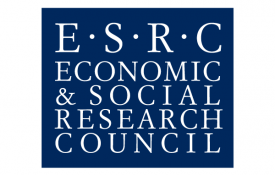-

High Wealth Inequality Linked With Greater Support for Populist Leaders
People who live or think they live in a more economically unequal society may be more supportive of a strong, even autocratic leader, a large-scale international study shows.
-

New Research From Clinical Psychological Science
A sample of research exploring interpretation bias in anxiety and depression, neural reward responsiveness in children with suicidal ideation, and eye movements and false-memory rates.
-

Elliot Tucker-Drob Receives Prestigious Honor for Lifespan Development Research
APS Fellow Elliot Tucker-Drob of the University of Texas at Austin has been named a recipient of the Max Planck-Humboldt Medal for his achievements in the fields of personality and developmental psychology.
-
How to have great meetings, according to 200 scientific studies
Americans average six hours per week in meetings. And managers especially spend considerably more time in them. But attendees rate as many as half of the meetings they attend as “poor,” and organizations in the US waste an estimated $213 billion on ineffective meetings annually. What are the keys to effective meetings? Researchers at the University of Nebraska and Clemson University reviewed almost 200 scientific studies of meetings published in the last decade. Their conclusions, published last year in a Current Directions in Psychological Science journal article, offer a roadmap for getting meetings right.
-
We’re All Gonna Die! How Fear Of Death Drives Our Behavior
Many people tend to push frightening realities out of mind rather than face them head-on. That's especially true when it comes to the terrifying event that no one can escape — death. Psychologist Sheldon Solomon says people may suppress conscious thoughts about their mortality, but unconscious ones still seep through. In the book The Worm at the Core: On the Role of Death in Life, Solomon, along with psychologists Jeff Greenberg and Tom Pyszczynski, illustrate how death anxiety influences people's behavior in ways they would never suspect.
-

Funding Opportunities from the Economic and Social Research Council
Did you know? The Economic and Social Research Council, the UK’s largest organization for funding research on social and economic issues, offers two types of general grants that may be of potential interest to psychological scientists.

